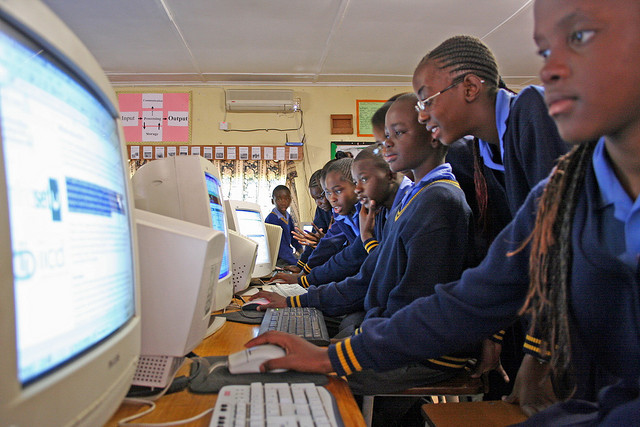By: Gilbert Nakweya
Send to a friend
The details you provide on this page will not be used to send unsolicited email, and will not be sold to a 3rd party. See privacy policy.
[KAMPALA] Access to the Internet is a fundamental requirement for transforming Africa’s education sector to achieve higher standards, a conference has heard.
The 9th eLearning Africa Conference, which brought together more than 1,500 delegates, with 81 per cent of them from Africa, was held in Kampala, Uganda, last week (28-30 May).
Experts in information and communication technology (ICT) who attended the conference said that increased Internet connectivity, especially in rural areas, will help enhance quality of education in Africa.
The experts hailed the Internet for easing globalisation, noting that teachers and students can now share information worldwide.
“We need a paradigm shift through equitable distribution of education in Africa and [thus] Internet connectivity is imperative.”
Noah Samara, Yazmi, United States
Valerie Wood-Gaiger, founder of the UK-based Learn with Grandma, a non-profit organisation that promotes learning involving generations, said: “The Internet has made what seemed impossible, possible. Home science skills [such as] cooking can today be found online for our girls and such skills open up more opportunities for children”.
She challenged delegates to take action and lead Internet connectivity initiatives in their countries.
Venasius Baryamureeba, a professor of technology at the Uganda Technology and Management University, added that the Internet could benefit Africa most because the continent has large number of young people, who are most interested in Internet browsing.
“The Internet is of great significance in learning and has brought numerous benefits to people globally,” said Baryamureeba. “Everything today can be done online, including teaching and lecturing, student assessments, discussions and examinations.”
Policymakers from governments, industry and academic institutions pointed out the need to promote satellite-enabled learning technology platform, especially in rural areas.
“We need a paradigm shift through equitable distribution of education in Africa and [thus] Internet connectivity is imperative,” said Noah Samara, the chairman of US-headquartered satellite organisation, Yazmi.
But Athambile Masolo, a high school teacher from South Africa, said that Africa needs to focus on the quality of the content delivered to students much more than Internet connectivity. “The Internet could be important in education, but we need to put emphasis on creating a conducive environment for learning and teacher training,” Masolo told SciDev.Net.
Masolo called for training of more teachers to close the gaps in teacher-student ratios. “It is important that we build capacity first before bringing in the technologies,” she advised.
Delegates advocated for Africa to set up affordable and reliable infrastructure in ICTs and provide more investments in ICT and eLearning research in Africa to find priority areas. They said students should be trained in auditing the quality of the content posted online.
The experts called for scalable and sustainable ICT interventions such as extensive capacity building to improve the quality of learning in African schools.
Uganda’s minister for ICT John Nasasira said there is need to review national eLearning strategies and set up supportive legal framework to promote eLearning.
The conference is an annual event organised by Germany-based company — Integrated Communications, Worldwide Events.
This article has been produced by SciDev.Net's Sub-Saharan Africa desk.














